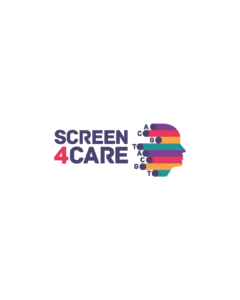 For the 15th consecutive year, the National Conference on Rare Diseases and Orphan Drugs is set to take place, organized by the Institute for Rare Diseases.
For the 15th consecutive year, the National Conference on Rare Diseases and Orphan Drugs is set to take place, organized by the Institute for Rare Diseases.
The conference is the most significant forum in the field of rare diseases in Bulgaria, having been held since 2010. The event traditionally brings together all stakeholders, including medical specialists, patients, medical students, health authorities, and industry representatives, to present and discuss advancements in the diagnosis, treatment, and management of rare diseases, as well as access to innovations.
This year, the event will mark the 20th anniversary of the establishment of the Institute for Rare Diseases. The institute’s team has successfully contributed to the development of the national policy and strategy for rare diseases, providing information and consultations for patients and medical professionals. Additionally, they have successfully implemented various training programs, projects, and seminars.
Location: Hotel Imperial Plovdiv, Plovdiv
Early registration deadline: May 1, 2024
Late registration deadline: September 1, 2024
Abstract submission deadline: August 1, 2024
For contact with the organizing committee: congress@raredis.org
Additional information can be found at the XV National Conference on Rare Diseases and Orphan Drugs – Virtual Congress Center (raredis.org).

 Georgi Iskrov, Ralitsa Raycheva, Kostadin Kostadinov, Georgi Stefanov, Elena Mitova, Rumen Stefanov, and Stefan Stefanov, as part of the Institute for Rare Diseases and the Department of Social Medicine and Public Health at the Medical University – Plovdiv, actively participate in the Screen4Care project, which started in 2021. Screen4Care offers an innovative research approach to accelerate rare disease diagnosis, which is based on two central pillars: genetic newborn screening and digital technologies.
Georgi Iskrov, Ralitsa Raycheva, Kostadin Kostadinov, Georgi Stefanov, Elena Mitova, Rumen Stefanov, and Stefan Stefanov, as part of the Institute for Rare Diseases and the Department of Social Medicine and Public Health at the Medical University – Plovdiv, actively participate in the Screen4Care project, which started in 2021. Screen4Care offers an innovative research approach to accelerate rare disease diagnosis, which is based on two central pillars: genetic newborn screening and digital technologies.
 This study aims to describe a large cohort of Italian patients affected by osteogenesis imperfecta, providing a picture of the clinical bony and non-bony features and the molecular background to improve knowledge of the disease to inform appropriate management in clinical practice.
This study aims to describe a large cohort of Italian patients affected by osteogenesis imperfecta, providing a picture of the clinical bony and non-bony features and the molecular background to improve knowledge of the disease to inform appropriate management in clinical practice. In European Union countries, a disease affecting less than 5 people in 10,000 is considered rare. Due to the scarcity of expertise and the complexity of rare diseases, patients may go undiagnosed for years. Efforts are made to incorporate ORPHA nomenclature into health information systems, allowing coding for rare diseases. Previously, this nomenclature only covered specific rare diseases, leaving those with undiagnosed conditions without codes. Recognition of rare diseases status is crucial for patients, aiding in care reimbursement, providing social and psychological empowerment, and granting access to scientific advances, even without a precise diagnosis.
In European Union countries, a disease affecting less than 5 people in 10,000 is considered rare. Due to the scarcity of expertise and the complexity of rare diseases, patients may go undiagnosed for years. Efforts are made to incorporate ORPHA nomenclature into health information systems, allowing coding for rare diseases. Previously, this nomenclature only covered specific rare diseases, leaving those with undiagnosed conditions without codes. Recognition of rare diseases status is crucial for patients, aiding in care reimbursement, providing social and psychological empowerment, and granting access to scientific advances, even without a precise diagnosis. This study includes over 11.6M newborns screened (NBS) for Pompe Disease (PD) from 29 distinct universal screening programs across 8 countries and 4 continents. The birth prevalence of Pompe Disease is 1:18,711, with no evidence of difference across populations of European, Latin American, or Asian ancestry, though differences may exist for Pompe Disease subtypes. This study also compares these results, based on direct detection of disease and analyzed using a binomial method along with power analysis, with other methods for estimating the ‘frequency’ of rare genetic diseases.
This study includes over 11.6M newborns screened (NBS) for Pompe Disease (PD) from 29 distinct universal screening programs across 8 countries and 4 continents. The birth prevalence of Pompe Disease is 1:18,711, with no evidence of difference across populations of European, Latin American, or Asian ancestry, though differences may exist for Pompe Disease subtypes. This study also compares these results, based on direct detection of disease and analyzed using a binomial method along with power analysis, with other methods for estimating the ‘frequency’ of rare genetic diseases. Rare diseases, such as inherited metabolic diseases, have been identified as a health priority within the European Union more than 20 years ago and have become an integral part of EU health programs and European Reference Networks. Having the potential to pool data, to achieve sufficient sample size, to overcome the knowledge gap on rare diseases and to foster epidemiological and clinical research, patient registries are recognized as key instruments to evidence-based medicine for individuals with rare diseases.
Rare diseases, such as inherited metabolic diseases, have been identified as a health priority within the European Union more than 20 years ago and have become an integral part of EU health programs and European Reference Networks. Having the potential to pool data, to achieve sufficient sample size, to overcome the knowledge gap on rare diseases and to foster epidemiological and clinical research, patient registries are recognized as key instruments to evidence-based medicine for individuals with rare diseases. Patient engagement is defined as the meaningful involvement and active partnership of patients and key partners throughout the entire research project. This article reviews the importance of developing a patient engagement plan to promote better alignment of research with patients’ and clinicians’ real-world needs and concerns.
Patient engagement is defined as the meaningful involvement and active partnership of patients and key partners throughout the entire research project. This article reviews the importance of developing a patient engagement plan to promote better alignment of research with patients’ and clinicians’ real-world needs and concerns. People living with rare diseases and their families still experience considerable unmet needs, including prolonged diagnostic journeys, limited treatment options, and a huge psychosocial burden due to the lack of coordinated, integrated care. Attainment of universal health coverage for rare diseases is dependent on fundamentally different health determinants and demands for different solutions. This involves consolidating expertise through Centers of Excellence, establishing efficient care pathways, fostering extensive collaboration at European and global levels in research and healthcare, and putting patients at the center of care.
People living with rare diseases and their families still experience considerable unmet needs, including prolonged diagnostic journeys, limited treatment options, and a huge psychosocial burden due to the lack of coordinated, integrated care. Attainment of universal health coverage for rare diseases is dependent on fundamentally different health determinants and demands for different solutions. This involves consolidating expertise through Centers of Excellence, establishing efficient care pathways, fostering extensive collaboration at European and global levels in research and healthcare, and putting patients at the center of care. Sarcoidosis is defined as an immune-mediated multi-organ granulomatous disease with unknown etiology, which is characterized by the presence of multiple non-caseating granulomas in the absence of a definite infective or toxic cause. Neurosarcoidosis (NS) occurs when sarcoid granulomas invade the central or peripheral nervous systems. Sarcoidosis usually presents with non-specific manifestations, including dry cough, fatigue, night sweats, weight loss, skin changes, and eye manifestations. Many patients who develop NS present with neurological manifestations within two years of being diagnosed with sarcoidosis. In this article a case of newly diagnosed sarcoidosis in a 49-year-old male patient initially presenting with neurological manifestations of unknown origin is presented, later identified as NS on peripheral lymph node biopsy with non-caseating granuloma. Read the full article
Sarcoidosis is defined as an immune-mediated multi-organ granulomatous disease with unknown etiology, which is characterized by the presence of multiple non-caseating granulomas in the absence of a definite infective or toxic cause. Neurosarcoidosis (NS) occurs when sarcoid granulomas invade the central or peripheral nervous systems. Sarcoidosis usually presents with non-specific manifestations, including dry cough, fatigue, night sweats, weight loss, skin changes, and eye manifestations. Many patients who develop NS present with neurological manifestations within two years of being diagnosed with sarcoidosis. In this article a case of newly diagnosed sarcoidosis in a 49-year-old male patient initially presenting with neurological manifestations of unknown origin is presented, later identified as NS on peripheral lymph node biopsy with non-caseating granuloma. Read the full article  Rare disease registries (RDRs) facilitate monitoring of rare diseases by pooling small datasets to increase clinical and epidemiological knowledge of rare diseases and promote patient centred best practice. The aim of this study is to understand the current state of RDRs in Australia, data captured, impact on patient outcomes, funding models, and barriers and enablers regarding their establishment and maintenance.
Rare disease registries (RDRs) facilitate monitoring of rare diseases by pooling small datasets to increase clinical and epidemiological knowledge of rare diseases and promote patient centred best practice. The aim of this study is to understand the current state of RDRs in Australia, data captured, impact on patient outcomes, funding models, and barriers and enablers regarding their establishment and maintenance.